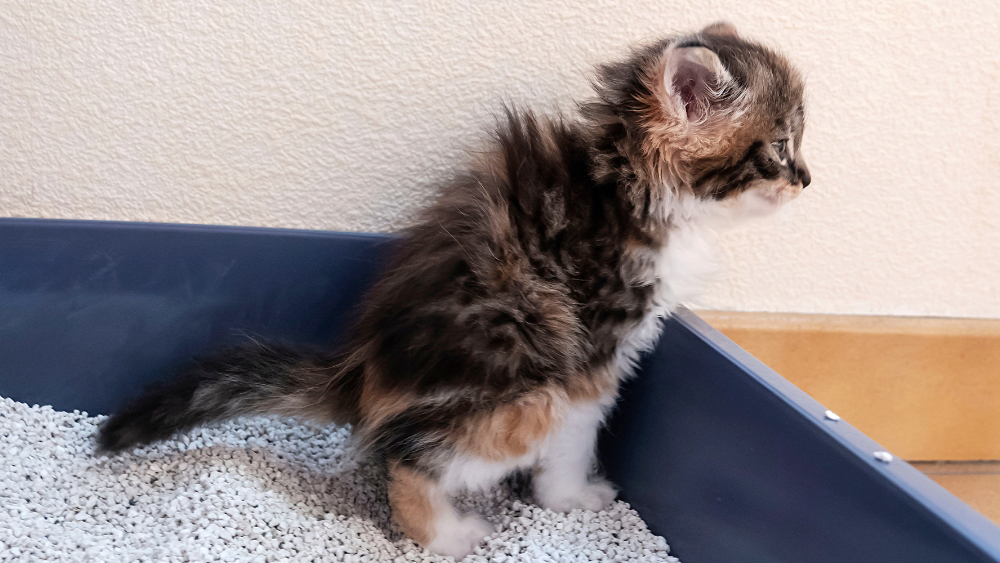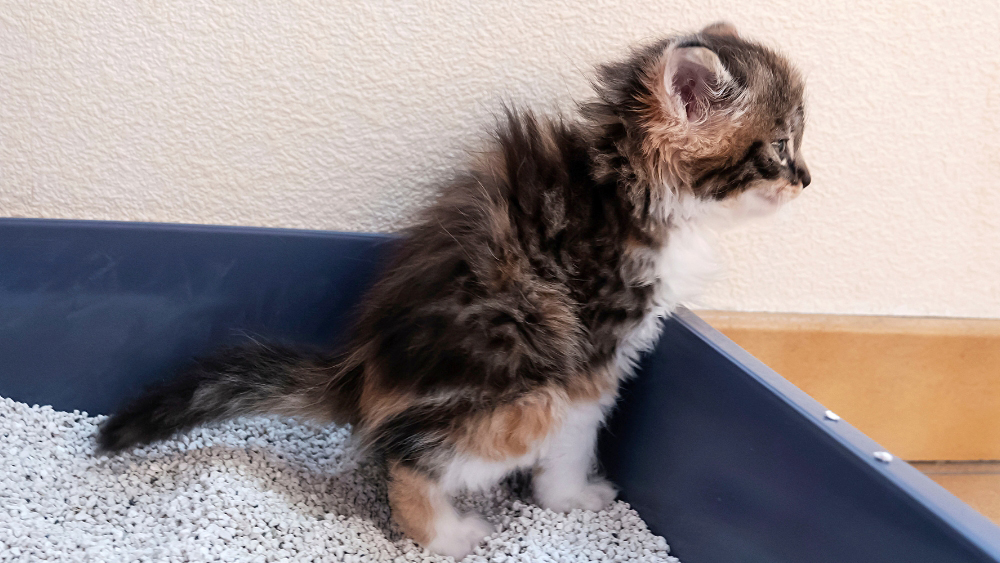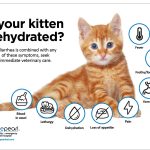As any cat lover knows, there’s nothing quite like the joy and wonder of bringing home a new kitten. The first few months are a whirlwind of snuggles, playtime, and getting to know each other. But as much as we adore our little furballs, it can be unsettling when they start vomiting.
Why a 9-Month-Old Kitten is Vomiting: Causes & Solutions
The good news is that in many cases, vomiting in kittens is not necessarily a cause for concern. However, it’s still important to identify the underlying reason and take steps to address the issue. In this post, we’ll explore some common causes of vomiting in 9-month-old kittens and offer practical solutions to help you keep your kitty happy and healthy.
Cause #1: Food Allergies or Sensitivities
Kittens are notorious for being picky eaters, and it’s not uncommon for them to develop food allergies or sensitivities. When they vomit after eating, it could be a sign that their digestive system is reacting to certain ingredients in their food. Common culprits include dairy products, beef, or soy.
If you suspect that your kitten’s vomiting is related to a food allergy, the first step is to consult with your veterinarian to rule out any underlying health issues. In the meantime, try switching to a hypoallergenic or novel protein-based diet to see if that resolves the issue. You may also want to consider adding a probiotic supplement to support their digestive health.
Stay tuned for our next section, where we’ll explore more potential causes of vomiting in 9-month-old kittens and offer practical tips for managing this common feline phenomenon.

As we discussed earlier, food allergies or sensitivities can be a common cause of vomiting in kittens. But what about other potential reasons? Let’s dive deeper and explore some additional possible causes.
Cause #2: Intestinal Worms
Kittens are prone to intestinal worms like roundworms, tapeworms, or hookworms. These unwanted visitors can cause a range of symptoms, including vomiting. If your kitten is vomiting frequently, it’s essential to get them checked by your veterinarian to rule out an infestation.
If the diagnosis is indeed worms, your vet may prescribe medication to treat the issue. In the meantime, make sure to keep your home clean and free of feces and urine, as this can help reduce the risk of re-infestation.
Cause #3: Gastrointestinal Foreign Bodies
It’s not uncommon for kittens to swallow small objects like hair ties, string, or even toys. If these foreign bodies get stuck in their digestive system, they can cause vomiting, diarrhea, and abdominal pain. Keep an eye out for any signs of gastrointestinal upset, and make sure your kitten is supervised at all times.
If you suspect that a foreign body is causing the issue, don’t hesitate to seek veterinary attention. Your vet may need to perform imaging tests or endoscopy to locate the object and remove it safely.
Cause #4: Pancreatitis
Pancreatitis is an inflammation of the pancreas that can cause vomiting, abdominal pain, and other symptoms in kittens. This condition often occurs when the pancreas becomes overworked or damaged due to factors like genetics, diet, or underlying health issues.
If your kitten is experiencing vomiting along with lethargy, loss of appetite, or yellowing of the eyes (jaundice), it’s crucial to seek emergency veterinary care. Your vet may need to perform tests and provide treatment to manage symptoms and prevent complications.
Cause #5: Other Potential Causes
We’ve covered some common causes of vomiting in 9-month-old kittens, but there are other potential reasons to consider. These might include:
- Bacterial or viral infections
- Kidney stones or urinary tract issues
- Hyperthyroidism or other hormonal imbalances
- Cancer or other neoplastic diseases
If your kitten’s vomiting persists or worsens, it’s essential to consult with your veterinarian to determine the underlying cause and develop a plan for treatment. With proper care and attention, most cases of vomiting in kittens can be managed effectively.
Stay tuned for our next section, where we’ll explore practical solutions and tips for managing vomiting in 9-month-old kittens. Don’t miss it!
Get Expert Advice on Your Kitten’s Health
Our team of medical experts is here to help you understand and address your kitten’s vomiting issues.
Consult with a Medical ExpertIn our previous section, we explored the potential cause of food allergies or sensitivities leading to vomiting in 9-month-old kittens. But what if it’s not just their diet that’s to blame? Let’s dive into some other possible causes and solutions.
Cause #2: Gastrointestinal Issues
As kittens grow, their digestive systems are still developing, which can sometimes lead to issues like inflammatory bowel disease or gastrointestinal foreign bodies. These problems can cause vomiting, diarrhea, and abdominal pain.
If you suspect a gastrointestinal issue is at play, your veterinarian may recommend blood tests, urinalysis, or imaging studies to determine the underlying cause. Treatment typically involves medications to manage symptoms and, in some cases, surgery to remove any foreign bodies.
Cause #3: Infections
Just like humans, kittens can contract infections that affect their digestive systems, such as giardiasis or cryptosporidiosis. These parasites can cause vomiting, diarrhea, and weight loss if left untreated.
If you suspect an infection is to blame, your veterinarian will likely recommend a combination of medication and dietary changes to manage symptoms. In some cases, treatment may involve antibiotics or antiparasitic medications.
Summary
We’ve explored three potential causes of vomiting in 9-month-old kittens: food allergies or sensitivities, gastrointestinal issues, and infections. By identifying the underlying cause and working with your veterinarian to develop a plan, you can help your kitten feel better and reduce the risk of complications.
Final Insights
If your kitten is vomiting regularly, it’s essential to consult with your veterinarian to rule out any serious underlying health issues. In many cases, vomiting in kittens is not necessarily a cause for concern, but it’s still important to identify the root cause and take steps to address it.
Conclusion
As a responsible and caring cat parent, it’s natural to worry when your kitten starts vomiting. But by understanding the potential causes – food allergies or sensitivities, gastrointestinal issues, and infections – you can take proactive steps to help your little furball feel better. Remember, every kitten is unique, so be patient and work with your veterinarian to develop a personalized plan that addresses their specific needs. With love, care, and the right guidance, your 9-month-old kitten will be purr-fectly healthy in no time.
Related Posts:
- Can hydrogen peroxide make an ear infection worse: Are you dealing with an ear infection and wondering if using hydrogen peroxide can make it better or worse? Find out the surprising truth and learn how to effectively treat your ear infection. Click to learn more!
- The best mixed dog breeds for apartments: Are you looking for the perfect furry companion to join you in your cozy apartment? Discover the top mixed dog breeds that thrive in small spaces and are sure to bring joy and companionship to your life. Click to explore!
- Thank you for visiting our online retail store – your questions answered: Thanks for shopping with us! Have questions about your recent purchase or need help with an order? Get answers to all your burning questions and learn how we can assist you. Click to read more!




